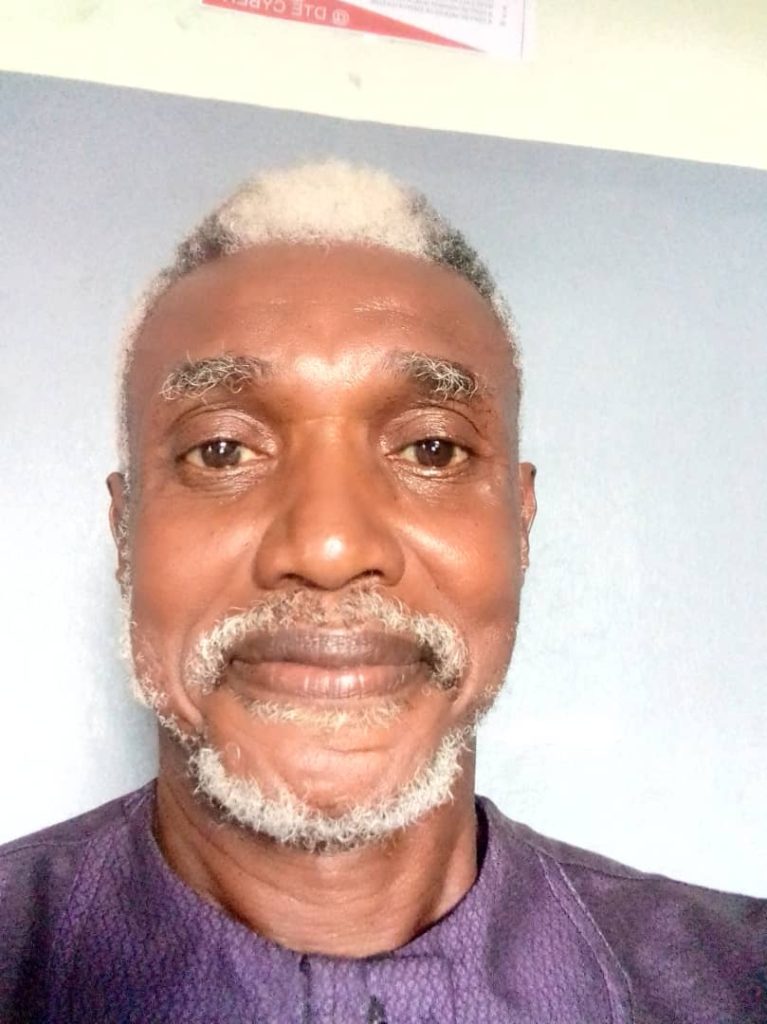
By Victor R. Etok Akpan 08065608338
If Governor Umo Eno (GUE) hopes to actualize his dream as professed during his campaigns for the office, being to industrialize Akwa ibom State, on his said passion for Akwaibomites to have a productive livelihood and for the prosperity of the State, political economist say, “he will ultimately have to go beyond having his “ARISE” Agenda in the public domain”.
It is in this connection that it is generally agreed on the problems facing the State as attributed to its largely subsistence living standard and rural outlook, as well as for having a highly under employed populace, by which it suffers low labour productive levels of its economy, that Governor Umo Eno (GUE), is expected to square up to these problems and so, should transform the State into becoming a highly skilled, technically equipped and functionally productive industrial entity.
It is in the light of the above, with our having been presented the “ARISE” Agenda, as his governments roadmap for the economic development of the State and with the consequences most closely matching our goals for industrialization, we could base our expectations of its outcomes, given to the political aspects of our democratic structures being historically usually referenced to our capitalist economic system and by which major economic activities are perform by private people and owned and controlled by firms, as against socialism, usually of a dictatorship political aspect with most economic activities performed by agencies owned and controlled by the government.
At this point, it may be important to remember that the distinction between the economic and political system is indispensible to a clear understanding of the mechanics of these systems.
Thus it is on the grounds of the differences between a political and the economic system as noted above in related terms to GUE’s economic blueprint for the State, that he is expected to now provide as well, the “right” leadership to affect the performance of his administration to succeed in delivering the goals of the said Agenda. This is in the light of our people’s local dialectical saying, “iyak-iyak mkpese ibre ikon”, translated out in English to one best ability to mean, “…jokes apart,…let’s face the facts”, or stressed in political jargons to mean, “…with the campaigns over,…it’s time for governance”, and as such, GUE is expected to have no room for political “publicist” on social media, from the said “trenches”, seen with “haughty eyes” for appointments, rather, he must now assemble a leadership of persons with the capacity and competence and of integrity as members of the State Executive Council and those to serve as his close aides, who most share a common vision with him to run the government with the ‘Private sector mind-set’, which GUE called for, on appointing the Secretary to the State Government of late. Therefore his appointees are expected to be persons who are knowledgeable and with the understanding to propagate economic democracy, vis-à-vis, the political representation and party-system structure of government, to provide accountability, private sector regulations and a conducive environment for business investments to thrive with the envisioned industrial prosperity of the State. This challenge reminds one that maintaining the success of victory could be more demanding than the process into it.
Also, GUE must in addition to his economy Agenda secure the co-operation of policy makers in the government of the day and of other interested and influential personalities, to implement the programs of the Agenda, whereby, his leadership capacity and competence must come to bear, to positively affect livelihood in the long run, with the gains of his industrialization policy being worth the cost.
Likewise in this vain, GUE must practically carry-along the Akwa Ibom people in the direction of his industrialization plans for the State, in that, the people are the resources whose productivity needs to be developed no less than the productivity of our lands and capital equipments, in order to underscore the goals of his “ARISE” Agenda and for which thousands of people as generally believed, are to be directly engaged and millions indirectly in industrial activities for economic power and modernization, as against the said present state, being that of a worrisome poverty situation, intolerable poor education standards and the vexing social isolation which renders the people powerless from participating actively in the programs of government policies. Such may be noted with the “ARISE” Agenda, with its policy on a 5 point program as follows:
(i) Agricultural Revolution: To achieve food sufficiency, given a policy for modern technology applications on the agricultural value chain, to add value to agric-products for domestic and export markets. This will be backed by financial-credits to farmers, to enhance their investments and productivity levels for greater earnings and an improved livelihood.
(ii) Rural Development: To reduce rural-urban migrations, given a policy to provide infrastructure/economic transformation and skills development in rural communities to enable its inhabitants operate more efficiently to suit the impending industrialization that will create and keep wealth in such places.
(iii) Infrastructural Maintenance/Advancements: To maintain our public utilities/facilities given a policy with international best practices for a maintenance culture and to provide the continued needed infrastructure with development projects, given a policy to meet demands with modern technological standards for social- economic needs.
(iv) Security Management: To maintain the prevailing peaceful co-existence and the safety of lives and property in the State, given a policy to strengthen the security architecture for a conducive environment that will enable the impending industrialization to thrive and for the prosperity of the State.
(v) Educational Advancement : To establish skills development for human resources as a most important capital development factor, to be obtained along with formal education and based on a train to-fit STEAM concept, being an acronym for Science, Technology, Engineering, Arts and Mathematics, relevant as the foundation for educational advancement with the impending industrialization of the State.
Hence political economist also comment on noting the value of GUE’s policy programs, to improve upon the livelihood of the people that it could gain a wider-spread acceptance, for its being tailored to suit the productive comparative advantages of the respective communities/localities within known catchment areas for projects, such as for the palm produce industry, fishing/fish canning industry, cassava processing industry and with a number of other identifiable projects of comparative advantage to their catchment areas. These projects as noted will be undertaken with improvements on the existing basic infrastructure in the State, such as, The Victor Attah International Airport, Uyo, - the most intelligent/smartest airport in the region; the 5 Star Nuga Hotel and Games Resort, Uyo; The 21 storey Dakkada Towers, - the 7th tallest/smartest in the nation; the State’s best roads network in the region; and other infrastructures which are fundamental to the industrialization of the State. However political economist say that the sophistication, understanding and running of an industrial economy is still far-fetched, unless we want to be satisfied with the name of the process only.
Considerably we can justify when GUE’s administration strives truly to industrialize the State for positive ends, in that the people must be motivated through citizens participation in governance, which is low and with being made proud of the envisaged broad based accomplishments with their productive endeavors for common good and not necessarily through the exercise of power, in the narrow sense to reflect the social basic power of the rich, the strong, the predatory or the vested interest.
Finally, there are other strategic infrastructure that will permit advancement and growth as a myriad of development procedures that are contingent for the success of GUE’s industrialization policy programs for the State.
These include:i. Fixing Electricity Power: Given the need to attain universal access to electricity, is the Constitutional amendment to expand the State’s powers in the electricity sector to include the power to generate, transmit and distribute electricity with respect to areas already covered by the national grid. (1999 Constitution paragraph 14(b),part II, Second Schedule). GUE must therefore precipate the development of the Power sector in the State fully, given its ownership of the Ibom Power Plant which generates over 260Mega-Watts and with having secured the license for 685Megawatts generation, in other to attract an influx of private investment/industries, given the prospect to enable investors meet up with the huge capital requirement of project with the provision of electricity development in the State.
ii. Completion of Ibom Deep Sea Port: This is to be anchored on industrialization taking root in the State and beyond, with saving as the gateway sea route infrastructural facility for import and export, with sustainable expansion and growth as the largest Sea Port in Africa and meant to transformed the State into a transhipment City in other to complement the Government’s efforts in creating employment, wealth creation and an increase in revenue generation with the impending industrialization of the State.
In conclusion, it is the belief that industrial activities can be fully achieved in the State to impact positively on the life of the people given the exceptional capacity on the part of the State’s leadership for a private sector driven economic to better the society at large, and for which political observers say, should be the basis of GUE’s promised “Contract with the Akwa Ibom People”, in providing an enabling regulated business environment that is skillfully and technically equipped and peaceful, to make successful his dream to industrialize Akwa Ibom State. Mr. Victor R. Etok-Akpan, is a Journalist and political realist and writes in from Ikot Abasi L.G.A, Akwa Ibom State.



